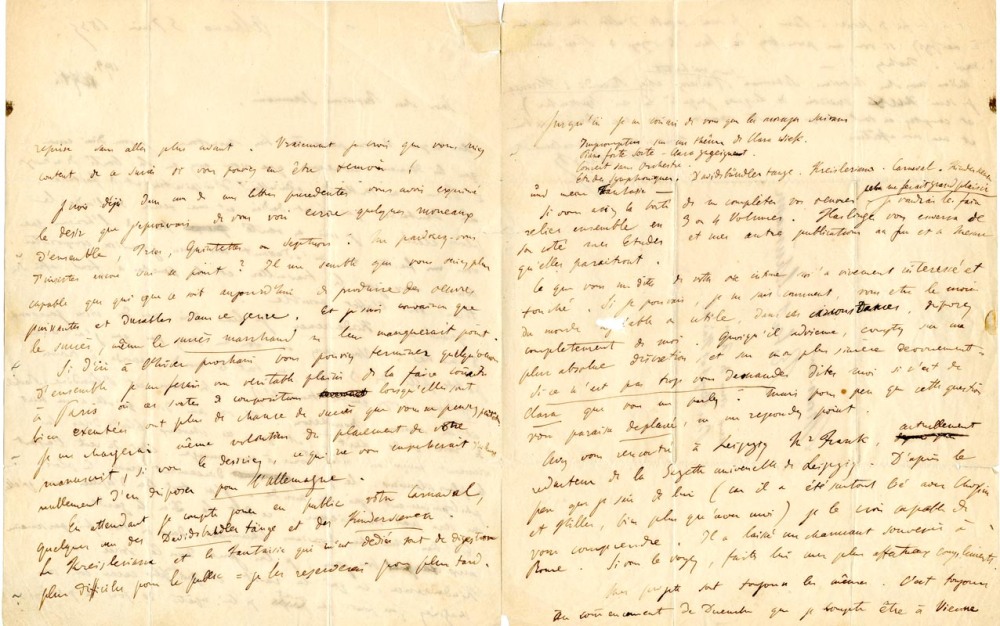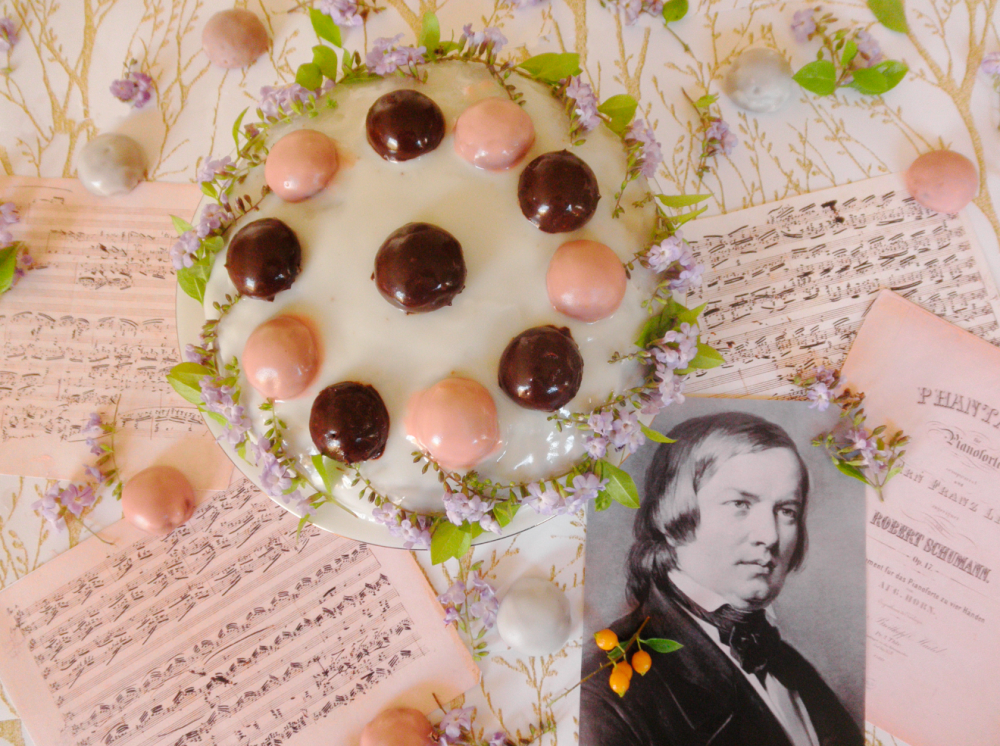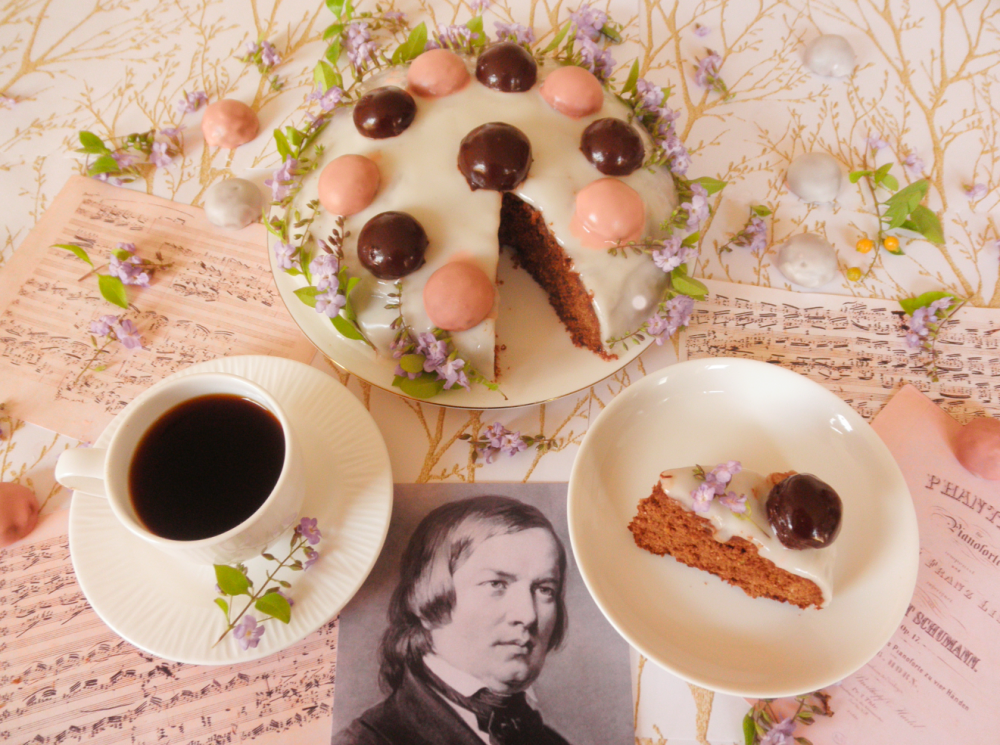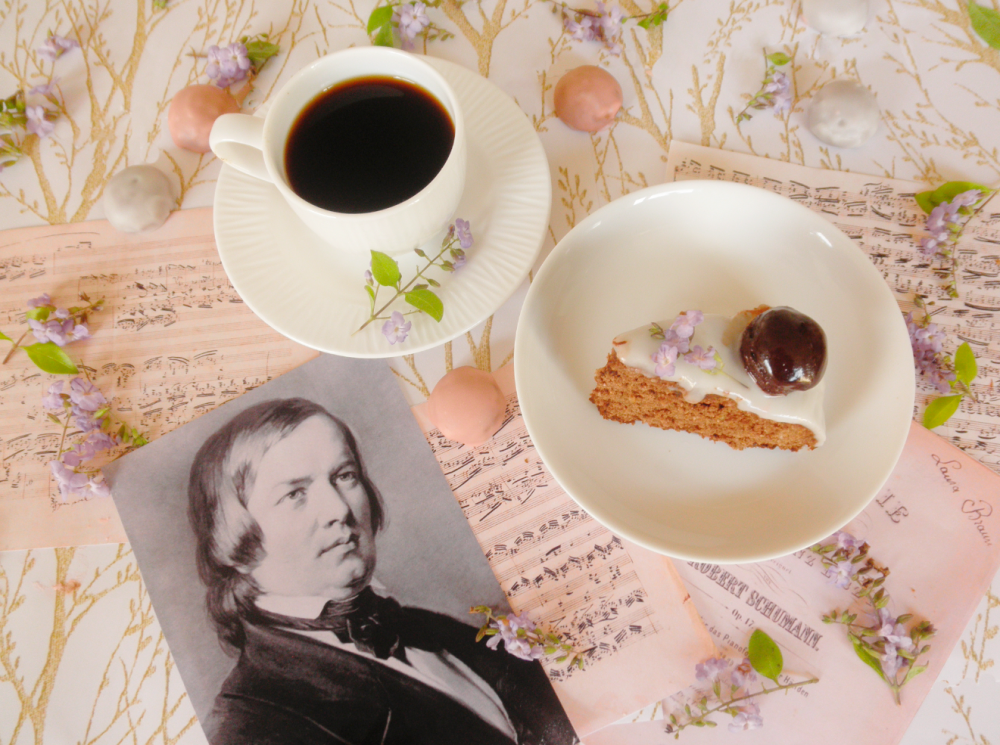
But whether I put the question to my head, heart, or reason, view it in the light of past, present, or future, or according to my abilities, hopes, or prospects, everything from my childhood onwards points to an artistic career. Ask yourself frankly, as you think about my childhood, boyhood, and early manhood, in what direction my instincts always led me. . . . . Let me draw you a parallel…
The signpost pointing towards Art says: If you are diligent you can reach your goal in three years.’ Law says: ‘ In three years you may, perhaps, be an official earning sixteen groschen a year.’ Art continues: ‘ I am free as air, and the whole world is my haven.’ Law says with a shrug: My practice involves constant subordination at every step of the way and immaculate dress.’ Art goes on to say: ‘ Where I am, there is beauty; I rule the heart, whose emotions I have called into being; I am unshackled and infinite; I compose and am immortal…
To his mother, August 22, 1830.

Distance, which dulls the visual world, only- renders the world of memory more distinct. Enthusiasm is changed to glowing classic calm, and its expression is refined to a Goethe-like thoughtfulness. So tremble for the description to come, the labyrinth of words to be struggled through…
To Theresa Schumann. Brescia, September 16, 1829.

Then I must eat, drink, play the piano, smoke, drive to Mannheim once in a way, go to lectures, buy books and music; and all this is a great expense. Then there are these confounded dances (entailing fancy dress), tips, my subscription to the museums, cigars (a serious item), the piano-tuner, the laundress, the shoe-black, candles and soap, also the drinks I occasionally have to stand — all these things would drive me to despair, if I were not desperate already.
To his Mother. Heidelberg, February 24, 1830.

Music is to me the perfect expression of the soul, while to some it is a mere intoxication of the sense of hearing, and to others an arithmetical problem, and treated as such.
You are quite right to insist that every man should aim at contributing to the common weal; but, let me add, he must not sink to the common level. Climbing brings us to the top of the ladder. I have no desire to be understood by the common herd. . . .
Leipzig, August 9, 1832.
We are all pretty well; the melancholy birds of night still flit around me from time to time, yet they can be driven off by music.’
To Verhulst, November 4, 1848.